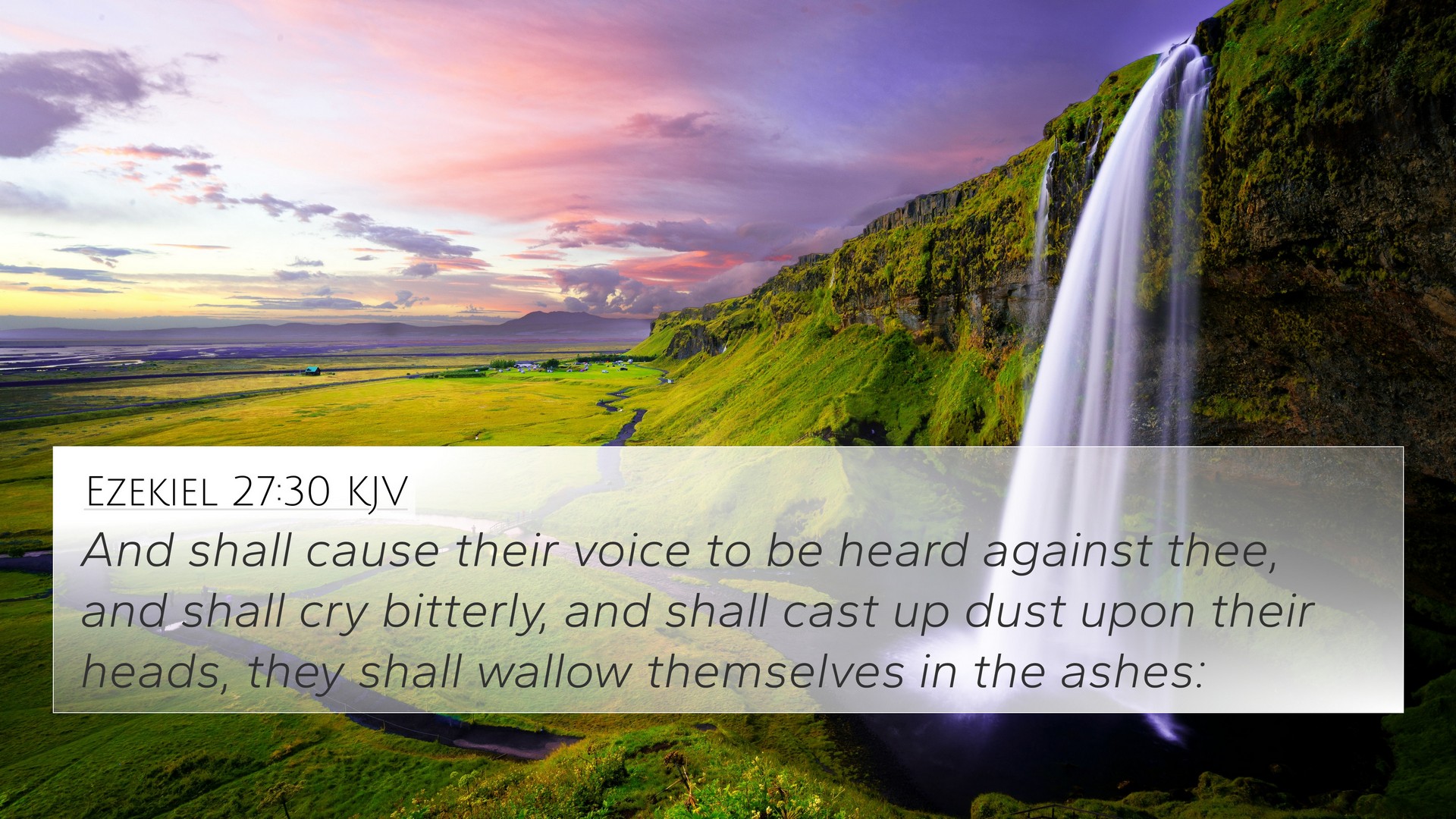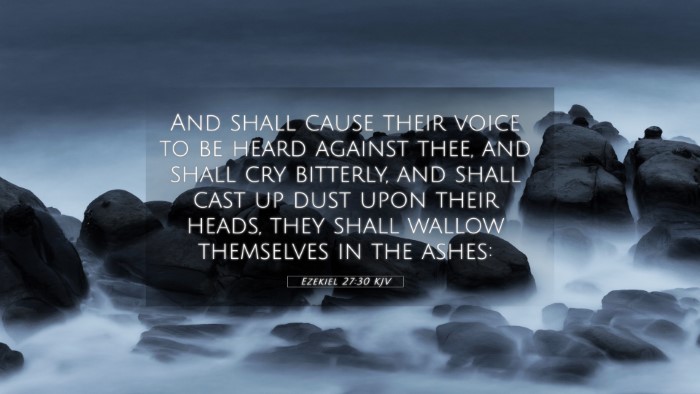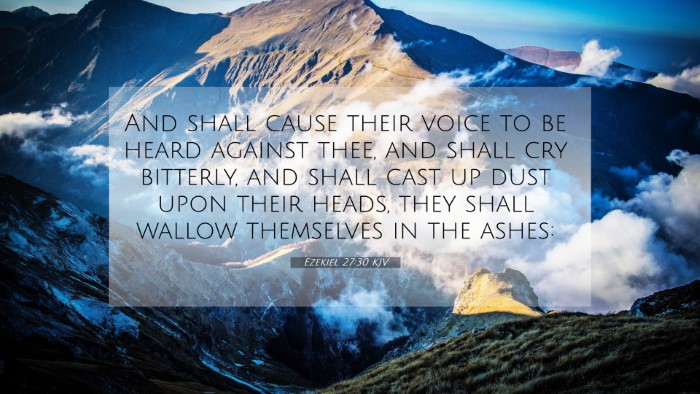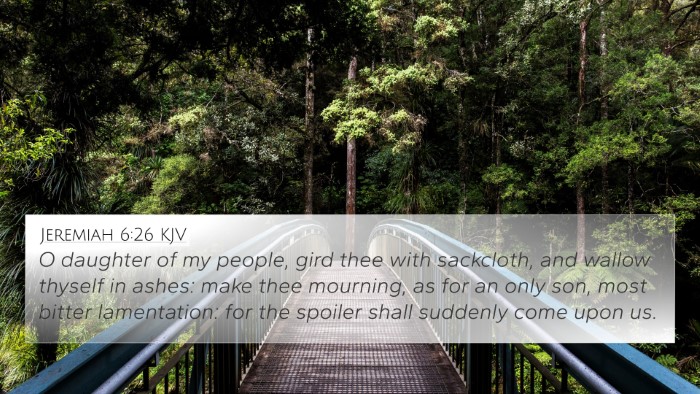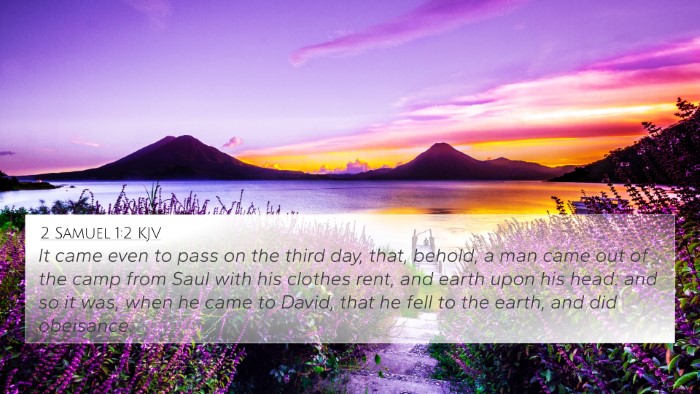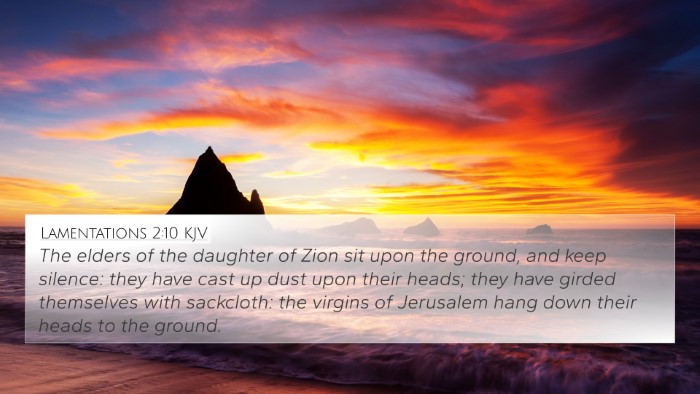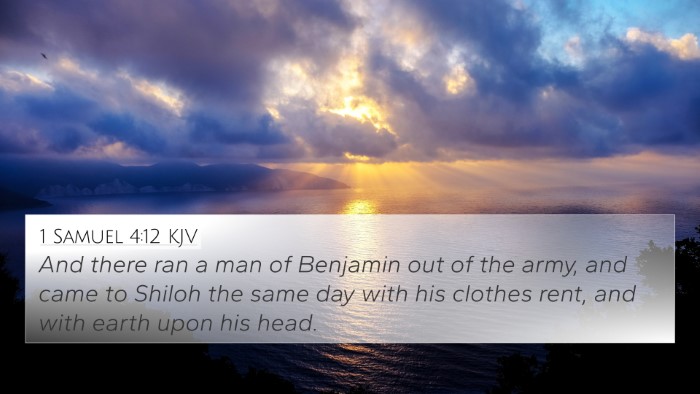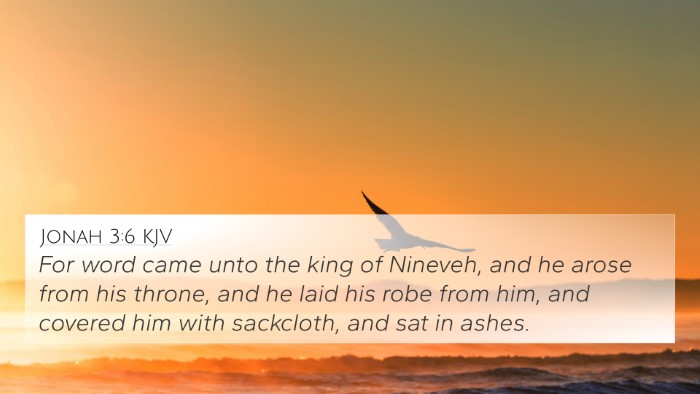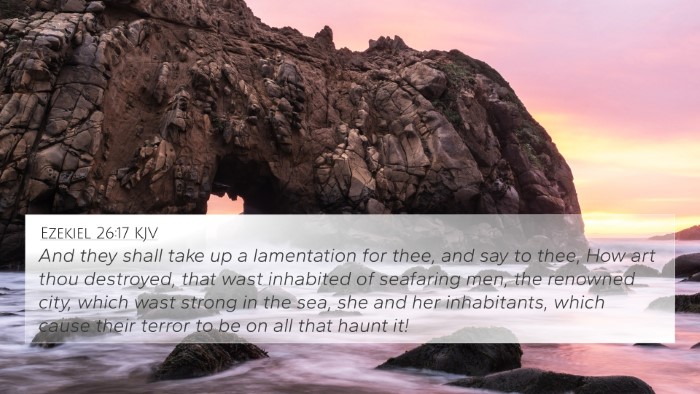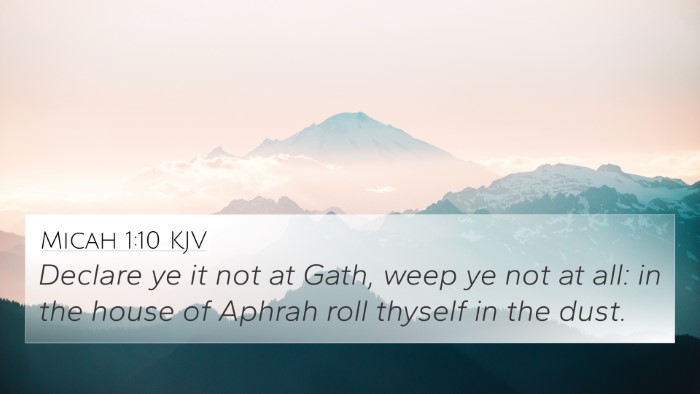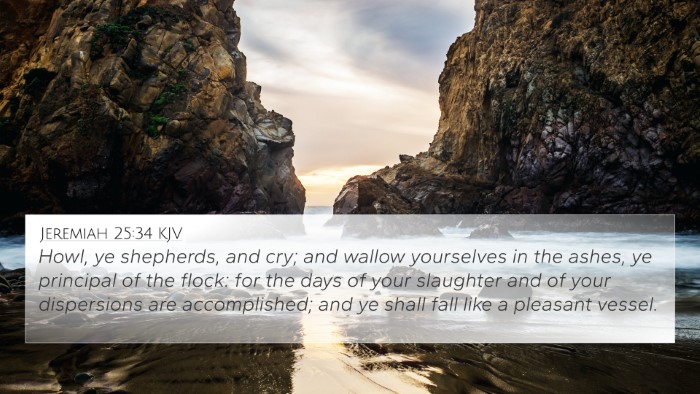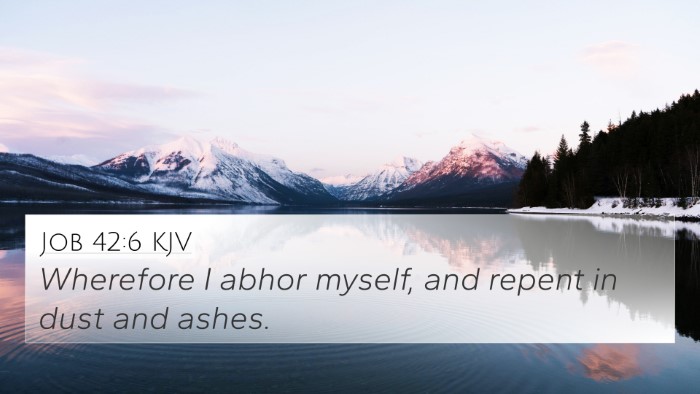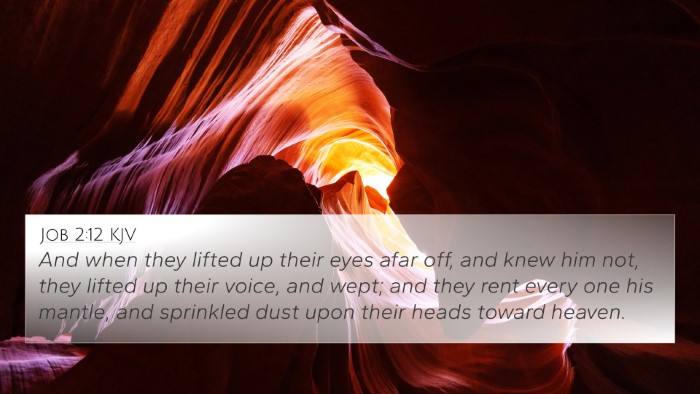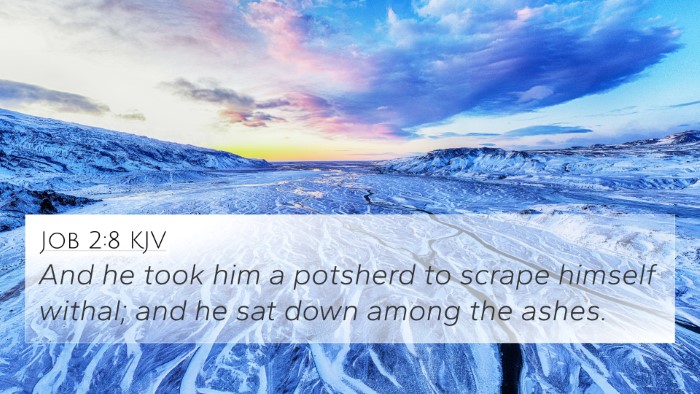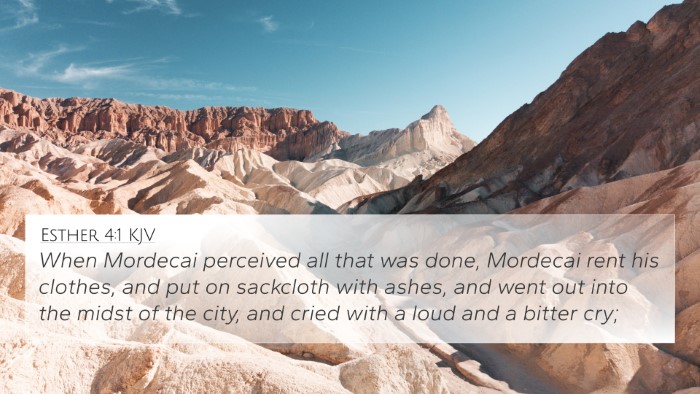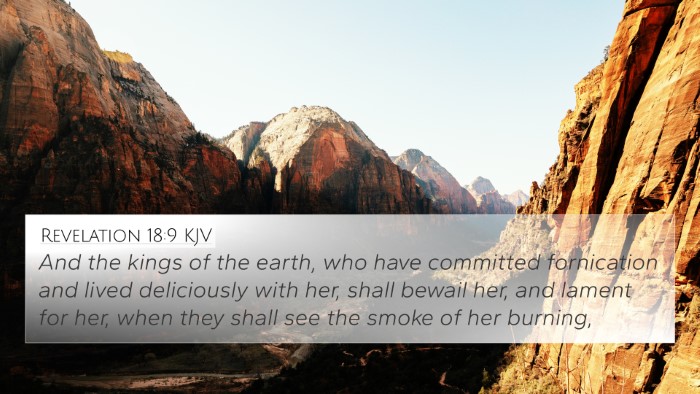Ezekiel 27:30 - Summary and Meaning
Ezekiel 27:30 reads: "And shall cause their voice to be heard in thee, and shall cry bitterly, and shall cast up dust upon their heads, they shall wallow themselves in the ashes."
This verse is part of a prophetic lamentation that describes the fall of Tyre, a city known for its commerce and wealth. The imagery used throughout this passage highlights the mourning that would occur due to the destruction of this great trading city.
Understanding the Context
Ezekiel, a prophet during the Babylonian exile, uses the ruin of Tyre to illustrate the judgment of God on nations that oppose Him. The city's destruction serves as a metaphor for God’s ultimate sovereignty and the futility of reliance on material wealth.
Key Themes
- Judgment and Consequence: The verse encapsulates the sorrow and devastation of Tyre's merchants and inhabitants in response to its demise.
- Mourning Rituals: The actions described—casting dust upon their heads and wallowing in ashes—are traditional signs of grief, emphasizing the depth of loss experienced.
- Hubris of Nations: Tyre's fall is a warning against pride and self-sufficiency, underscoring that no nation is beyond divine retribution.
Commentary Insights
Here we draw insights from three prominent public domain commentaries:
Matthew Henry's Commentary
According to Henry, this verse reflects the intense grief and desperation that the merchants of Tyre would experience. The collective mourning signifies the fragility of human endeavors reliant on trade, which can be swiftly undone by God's judgment.
Albert Barnes' Notes on the Bible
Barnes emphasizes the symbolic nature of the verse—where dust symbolizes humility and repentance. The passion in their cries illustrates the depth of their despair, which serves as a reflection of the city’s extensive economic loss.
Adam Clarke's Commentary
Clarke delves into the cultural practices of lamentation, illuminating how the people's actions signify mourning not only for their lost wealth but also for their future wiped away by divine judgment. He notes that such profound expressions of grief were common in ancient Near Eastern practices.
Cross-References and Thematic Connections
This verse connects to several other biblical passages, illustrating the theme of God’s judgment and the fall of great powers:
- Isaiah 23:1-18: A similar prophecy against Tyre, projecting the city’s economic collapse.
- Jeremiah 25:22: A broader context on nations facing judgment.
- Ezekiel 26:17-18: Further description of the mourning of Tyre's inhabitants.
- Revelation 18:10-19: The lament for Babylon reflects similar themes of loss and regret.
- Matthew 5:4: "Blessed are those who mourn," highlighting the blessedness amidst loss.
- James 4:9: Encourages mourning over sin, resonating with Tyre’s pride and subsequent fall.
- Lamentations 1:1-2: Speaks to the desolation and weeping over a fallen city.
Applying the Insights
This verse provides a crucial insight into the short-lived nature of material wealth and the importance of humility before God. It encourages readers to examine their reliance on worldly possessions and the transient nature of human endeavors.
Practical Questions for Reflection
- How does the mourning of Tyre relate to our understanding of prosperity and its pitfalls today?
- In what ways can we apply the principle of humility emphasized in this scripture in our lives?
- What other instances in scripture highlight God’s justice against pride and haughtiness?
Conclusion
In conclusion, Ezekiel 27:30 serves as a powerful reminder of the inevitability of God’s judgment and the importance of recognizing the transient nature of earthly riches. It encourages deeper introspection on the reliance upon material wealth and calls for humility in acknowledging God's supreme authority.
